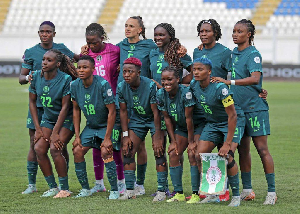Nigeria’s electricity distribution companies collectively raked in about N3.95tn revenue between 2019 and the first quarter of 2024, data from the National Bureau of Statistics showed.
NBS data revealed an upward trajectory in revenue generation over the past five years, as the power distributors made N482.6bn in 2019, N526.8bn in 2020, N761.2bn in 2021, N828.1bn in 2022, N1.07bn in 2023, and N291.6bn in the first quarter of 2024.
Experts attribute this consistent growth in revenue to several factors, including ongoing tariff adjustments moving towards cost-reflective pricing, which has allowed the Discos to align revenue with the cost of providing electricity.
Additionally, the National Mass Metering Programme has increased the number of metered customers, reducing estimated billing and improving the accuracy of revenue collection.
The programme has also contributed to reducing Aggregate Technical, Commercial, and Collection losses that have previously plagued the sector.
Also, the enhanced regulatory oversight and the adoption of modern technology in billing and collection have streamlined processes, minimised revenue leakages, and improved collection efficiency.
However, despite this revenue growth, the Discos face significant challenges, including high unpaid bills, electricity theft, infrastructure deficits, and energy losses.
These issues have hindered the Discos’ ability to fully capitalise on the potential of Nigeria’s electricity market.
Reacting to this, the President of the Nigeria Consumer Protection Network, Kunle Olubiyo, questioned the efficiency of the Discos and called for urgent reforms.
He told our correspondent on Friday that despite the pre-privatisation commitments of the Discos to meter customers and the improved collection and billing efficiency, the power distributors had largely failed to meet their obligations.
“We cannot score the Discos more than five per cent. In terms of complaints resolution, they lack the software to track issues and have failed woefully in conflict resolution,” he said.
Olubiyo further highlighted the inadequacies of the Discos despite significant investments in the firms by the government and the Central Bank of Nigeria aimed at network improvements.
He raised concerns about the implementation of the Federal Government’s National Mass Metering Programme, accusing some meter vendors and Discos of conspiracy.
“Many of the customers listed as metered were not metered. The idea was to attach GPS coordinates to every metered point as a precondition for metering, but this was not done,” the NCPN president stated.
According to Olubiyo, the government’s ongoing intervention, which includes funding the importation and installation of two million meters annually using public funds, raises questions about the essence of privatisation.
He highlighted instances where governance or liquidity issues led to Discos being placed under receivership, with interim management teams appointed by the Bureau of Public Enterprises.
However, he noted that the effectiveness of these interventions was often undermined by internal politics and job insecurity among Disco management.
“We’ve seen board chairmen abruptly remove MDs in Abuja, Port Harcourt, and several other Discos,” Olubiyo added, emphasising the precariousness of the situation.
Olubiyo welcomed the recent empowerment of states to regulate electricity within their jurisdictions under the Electricity Act, describing it as a positive development.
“The migration of electricity from the exclusive to the concurrent list is a good omen,” he said. He urged the Federal Government to invest its 40 per cent equity in Discos and shift towards resource-driven energy solutions.
Reflecting on the power sector’s performance since privatisation, Olubiyo lamented the stagnation in electricity generation.
Business News of Sunday, 25 August 2024
Source: punching.com













